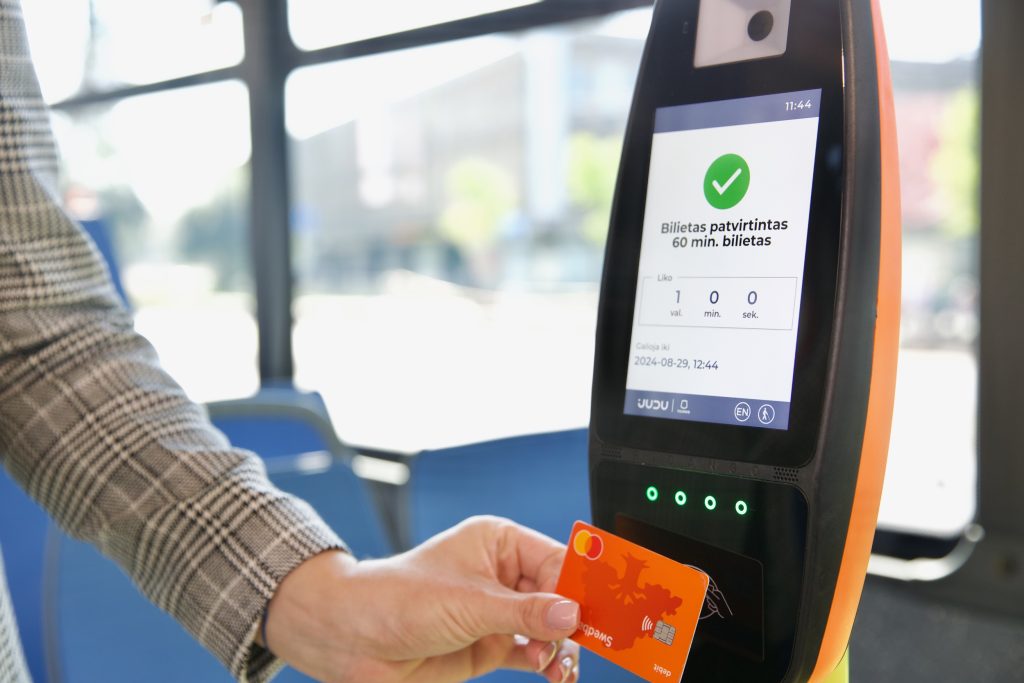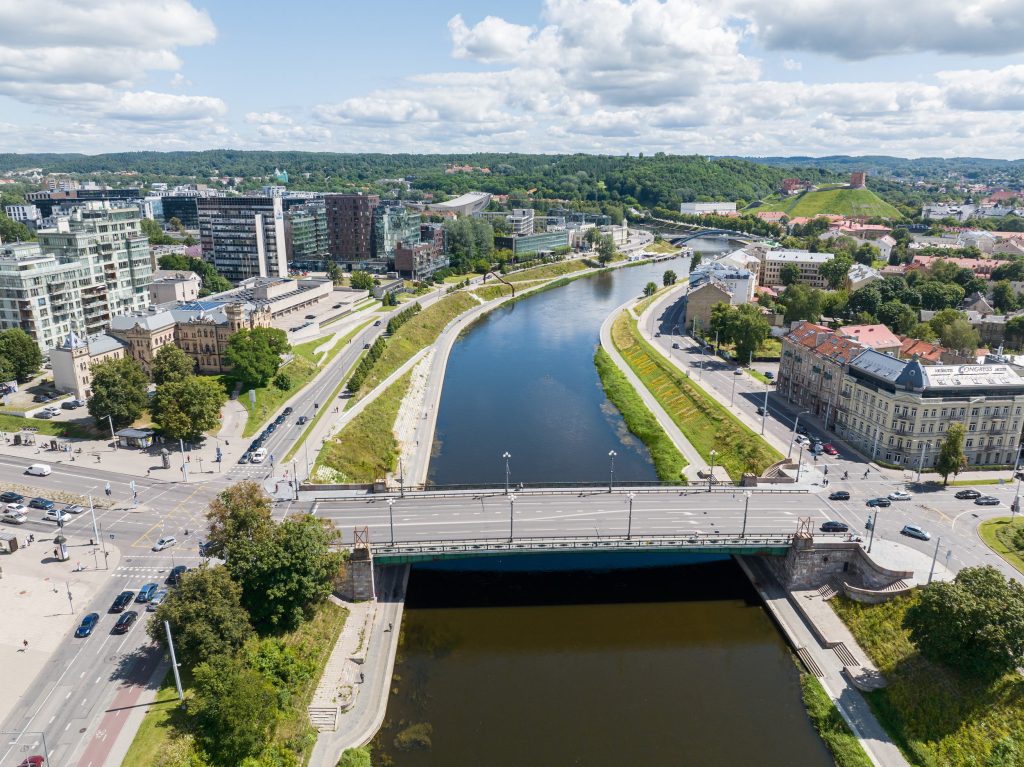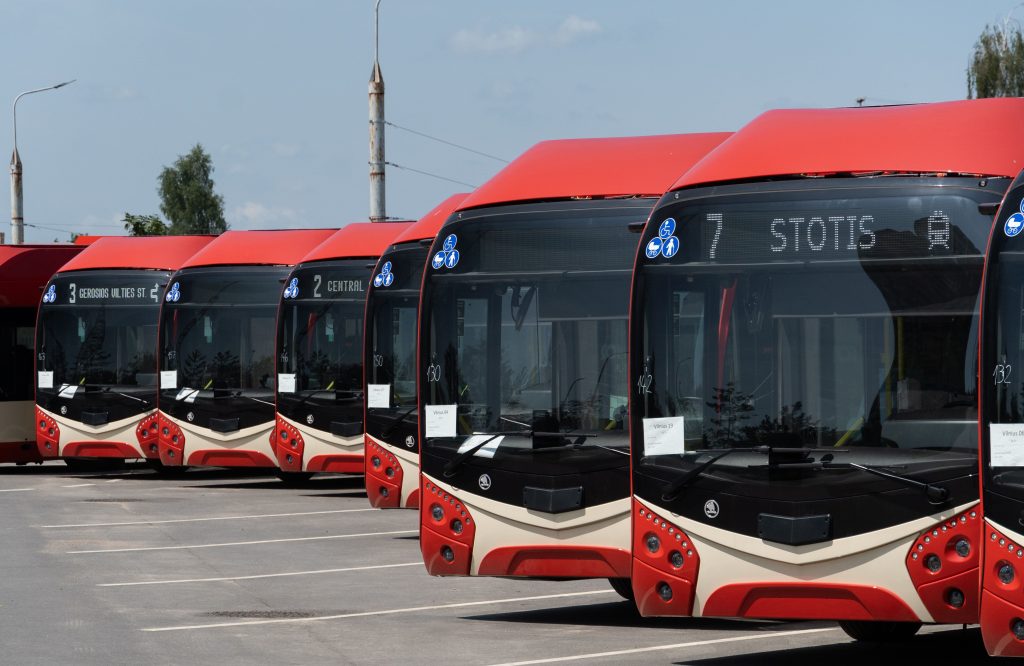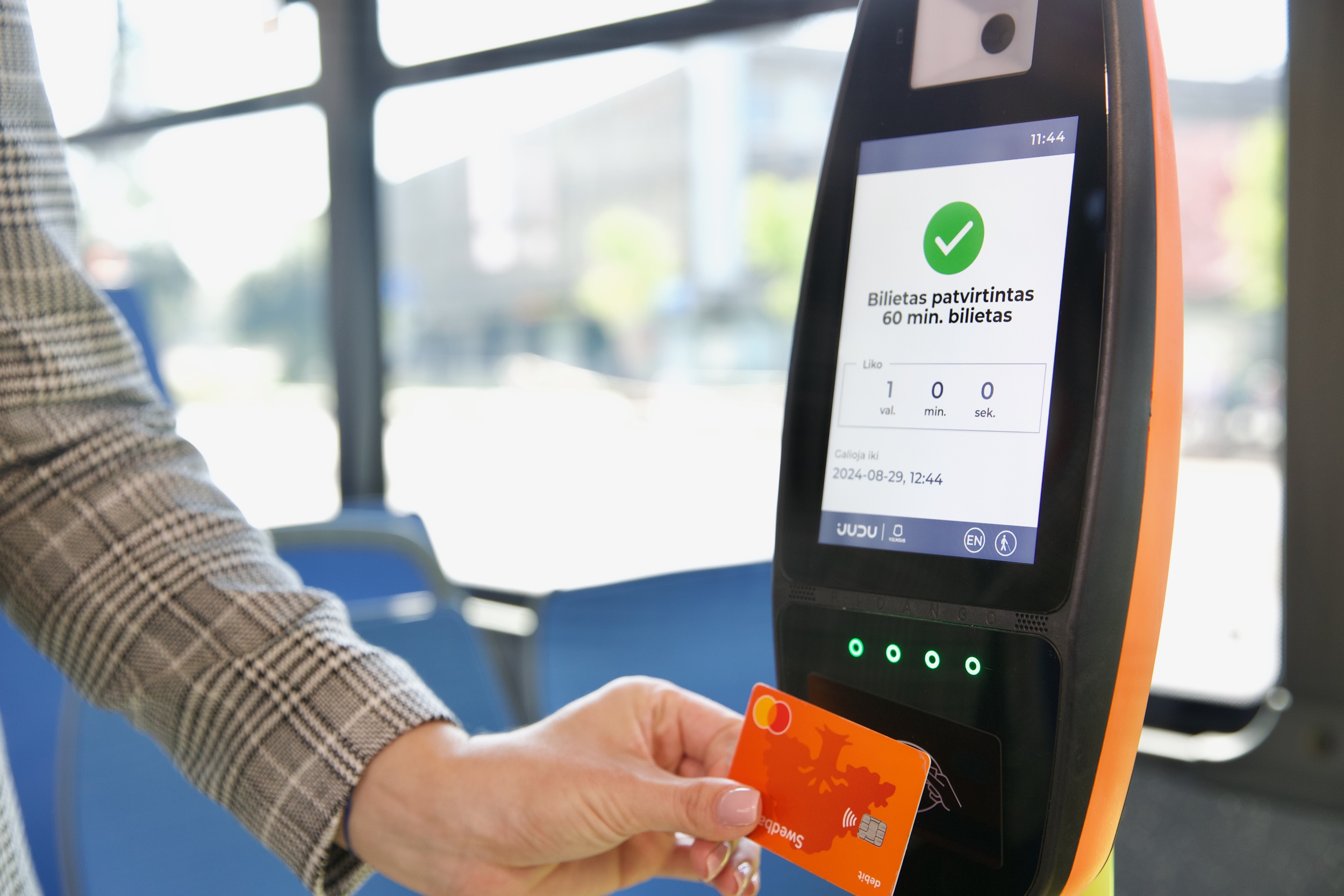Vilnius has officially rolled out a contactless payment system for its public transportation network, enhancing the ease and convenience of travelling around the city. At the same time, there are improvements to public transport services, as 20 new trolleybuses are now operating on the streets of the city, and electric water public transport on the Neris river is being developed.
Contactless payment now available on Vilnius public transport
The new contactless payment system allows passengers to use their bank cards, smartphones, or smartwatches to pay for bus and trolleybus rides without the need for physical tickets or cash. By adopting this modern payment method, Vilnius aims to streamline the boarding process, reduce waiting times, and improve overall passenger experience.
Loreta Levulytė-Staškevičienė, Head of Public Transport at JUDU, emphasised the significance of this upgrade: “Implementing contactless payment in Vilnius public transport is a major step towards modernizing our city’s infrastructure. We are excited to offer a solution that not only simplifies the payment process but also supports our commitment to creating a more efficient and user-friendly public transportation system.”
For more information about how to use this new payment system, visit JUDU official website.

Vilnius approves electric water transport development
Vilnius City Council has taken a significant step towards sustainability by approving the development of electric water public transport on the Neris River. This initiative, set to be implemented in stages, will connect various parts of the city, starting with routes between the city centre and Žirmūnai. The first routes are expected to launch by the summer of 2025.
The project not only aims to reduce traffic congestion, but also enhance the city’s appeal by transforming the riverbank into a vibrant space. The electric water transport will seamlessly integrate with the existing public transport system, providing residents and visitors with a green alternative for commuting in Vilnius.
The project will involve the creation of modern docks and the introduction of electric vehicles that are both environmentally friendly and efficient. By encouraging the use of river transport, Vilnius hopes to reduce the number of cars on the road, thereby contributing to the city’s climate goals. Additionally, this initiative is expected to boost tourism by offering a unique and scenic way to explore Vilnius.
The development aligns with Vilnius’ broader strategy to enhance its public transport network and reduce its carbon footprint. By focusing on sustainable transport solutions, Vilnius is positioning itself as a forward-thinking European capital.
This project also represents an investment in urban innovation, as it integrates cutting-edge electric technology into everyday transport. As the capital of Lithuania moves towards its 2030 climate targets, initiatives like this will play a crucial role in shaping Vilnius’ future as a green and livable city.

New trolleybuses hit the streets of Vilnius
Vilnius is excited to announce the arrival of 20 new trolleybuses that are now operating on the city’s streets. These vehicles represent a significant upgrade to the public transport fleet, promising enhanced comfort, reliability, and efficiency for passengers. The introduction of these new trolleybuses aligns with Vilnius’s commitment to modernising its public transportation system and reducing environmental impact.
The new fleet features modern amenities such as improved seating, better climate control, and real-time information systems to keep passengers informed about their journey. With these advancements, travelers can expect a smoother and more enjoyable ride. Looking ahead, Vilnius plans to expand the trolleybus fleet further, with the aim of increasing the number of new trolleybuses to over 91 by 2025. The deployment of these trolleybuses is a key part of Vilnius’s broader strategy to modernize urban transport and provide a high-quality service to both residents and visitors.

